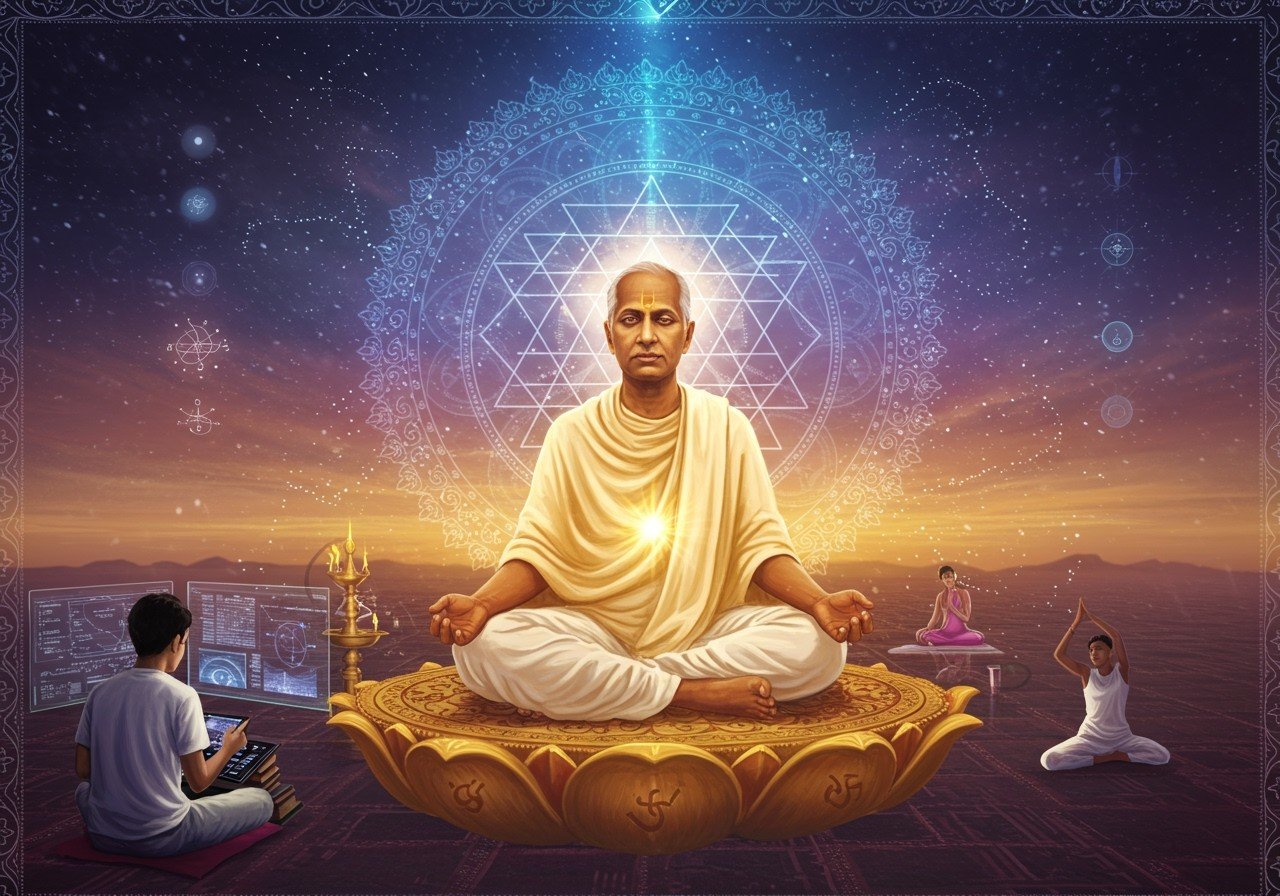
Sri Aurobindo’s educational philosophy beautifully blends spirituality with intellectual growth, aiming for the complete development of individuals. His ideas resonate deeply even today, offering a harmonious balance between tradition and progress. As we navigate the complexities of the 21st century, exploring his thoughts can provide valuable insights into education’s role in nurturing well-rounded individuals.
Delving into Sri Aurobindo’s Vision for Education
Sri Aurobindo believed that education’s true purpose is to help individuals discover and realize their true selves. He emphasized the development of not just the mind, but also the physical, vital, mental, psychic, and spiritual aspects of a person. He envisioned teachers not as strict instructors, but as guides who foster creativity and freedom. His vision was of an education system that aligns with one’s inherent nature, integrates cultural values, and encourages critical thinking that goes beyond rote memorization. These ideas remain incredibly significant in today’s tech-driven world.
Key Aspects of Sri Aurobindo’s Educational Philosophy
- Holistic Development: This forms the core of Sri Aurobindo’s philosophy. He believed education should nurture all dimensions of an individual – physical, vital, mental, psychic, and spiritual. This holistic approach creates well-rounded individuals equipped to contribute positively to society, fostering not only intellectual prowess but also emotional intelligence and spiritual awareness. Browse our collection of holy idols to inspire spiritual growth in your home.
- Individualized Learning: Sri Aurobindo recognized the unique potential within each person. Education, he believed, should provide ample opportunities for individuals to develop their unique talents and interests. This means allowing students to learn at their own pace, exploring subjects that ignite their curiosity, and developing their individual strengths. Find resources for individualized learning by visiting Poojn.in.
- Spiritual Growth: This plays a vital role in Sri Aurobindo’s vision. Through practices like self-reflection, contemplation, yoga, and meditation, students can embark on a journey of spiritual development. This inner growth encourages a deeper connection with oneself and the world around us, fostering a sense of purpose and belonging. Enhance your spiritual practice with our range of jaribooti and other puja essentials.
- Skills for the Future: Sri Aurobindo advocated for developing critical thinking, creativity, and collaboration skills. These essential abilities prepare students for the challenges and opportunities of the future, enabling them to adapt, innovate, and contribute meaningfully to a rapidly changing world. Explore a world of traditional knowledge and wisdom through our curated collection of spiritual texts.
- Integration of Knowledge: Sri Aurobindo believed that education should not exist in isolation. It should connect with the present society’s needs while anticipating the demands of the future. This includes material, economic, technological, social, and cultural aspects, ensuring that learning remains relevant and impactful. Discover traditional Indian crafts and artifacts at Poojn.in, bridging the gap between cultural heritage and modern education.
- Student-Centric Learning: In Sri Aurobindo’s vision, the student takes center stage. Teachers act as facilitators and mentors, fostering an environment of freedom and creativity rather than enforcing rigid rules. This student-centric approach allows for personalized learning experiences that cater to individual needs and learning styles. Create a serene and inspiring learning environment with traditional handcrafted items from Poojn.in.
- Emphasis on Indian Culture: Sri Aurobindo emphasized the importance of upholding our rich cultural heritage. Education, he felt, should incorporate these valuable elements into learning materials, enriching students’ understanding of their roots and fostering a sense of cultural pride. Explore our collection of puja utensils, crafted with respect for tradition and perfect for incorporating cultural elements into your daily life.
Connecting Sri Aurobindo’s Philosophy with NEP 2020
Remarkably, Sri Aurobindo’s principles align closely with India’s National Education Policy (NEP) 2020. The NEP emphasizes a shift away from rote learning towards holistic development, echoing Sri Aurobindo’s timeless ideas. Both emphasize the importance of nurturing well-rounded individuals equipped not only with academic knowledge but also with essential life skills, values, and a deep appreciation for their cultural heritage.
The Relevance of Sri Aurobindo’s Philosophy in Today’s World
In our fast-paced, technology-driven world, where change is constant, Sri Aurobindo’s insights offer a valuable sense of balance. They remind us of the importance of nurturing our inner selves alongside embracing modern advancements. As we move forward, integrating spirituality with intellectual growth has the potential to transform education, creating individuals who are not only knowledgeable but also wise, compassionate, and deeply connected to their inner selves.
Frequently Asked Questions about Sri Aurobindo’s Educational Philosophy
Many of us seek to understand how Sri Aurobindo’s vision can be applied practically in our lives. Let’s delve into some common questions about his educational approach:
What exactly does integral education mean in Sri Aurobindo’s philosophy? Integral education, as envisioned by Sri Aurobindo, focuses on developing every aspect of the individual – physical, emotional, mental, and spiritual. It moves beyond just academic knowledge to cultivate the whole person.
How can Sri Aurobindo’s teachings be applied in a modern educational setting? Sri Aurobindo’s emphasis on individualized learning and fostering creativity can be incorporated through personalized learning plans, project-based learning, and creating space for student-led exploration.
What is the role of spirituality in education according to Sri Aurobindo? Sri Aurobindo believed that spiritual development is crucial for a fulfilling life. While not tied to any specific religion, it involves cultivating inner awareness, self-reflection, and a connection to something larger than oneself.
How can parents integrate Sri Aurobindo’s principles at home? Parents can create a supportive environment that encourages curiosity, exploration, and self-expression. Practices like storytelling, meditation, and spending time in nature can nurture a child’s holistic development.
For those interested in learning more about Sri Aurobindo’s educational philosophy and its practical applications, Poojn.in offers a range of resources and products. You can explore our collection of spiritual books, meditation supplies, and other items that support holistic growth and self-discovery.
Visit Poojn.in today to discover how you can integrate these profound teachings into your life and create a more meaningful learning experience.


